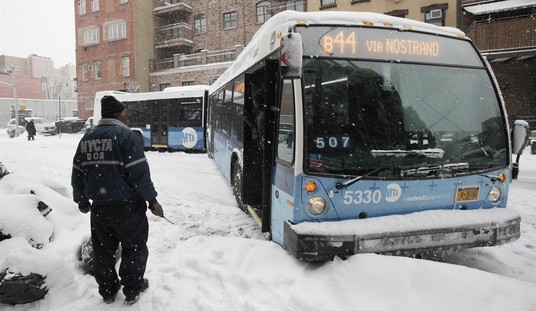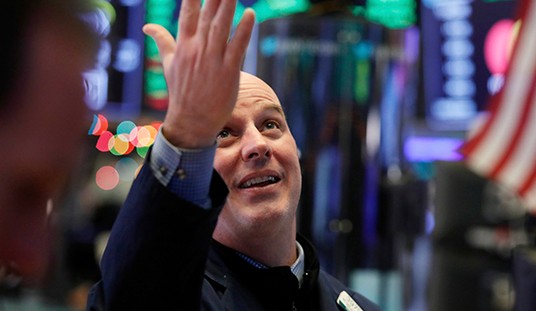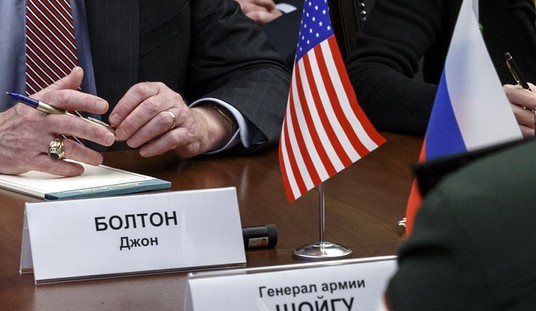Download Podcast | iTunes | Podcast Feed
On today’s edition of Coffee and Markets, Brad Jackson and Ben Domenech are joined by Senator Jim DeMint to discuss the fallout from the debt ceiling debate, the danger of Congress’ new super committee and his new book The Great American Awakening: Two Years that Changed America, Washington, and Me.
We’re brought to you as always by BigGovernment and Stephen Clouse and Associates. If you’d like to email us, you can do so at coffee[at]newledger.com. We hope you enjoy the show.
Related Links:
DeMint: Debt Deal Puts America at Risk
S.C. senators: Debt deal misses target
DeMint’s leadership PAC battles leaders’ in fight for future of Senate GOP caucus
The Great American Awakening: Two Years that Changed America, Washington, and Me
Senator Jim DeMint
Follow Brad on Twitter
Follow Ben on Twitter
Follow Senator DeMint on Twitter
Transcript
Jackson: On the show today our favorite Washington conservative warrior, Senator Jim DeMint is back. We’ll discuss the fallout from the debt ceiling deal, the danger of Congress’ new Super Committee, and his new book, The Great American Awakening: Two Years that Changed America, Washington, and Me. I’m your host Brad Jackson and you’re listening to the August 4, 2011 edition of Coffee and Markets.
Senator, thanks so much for joining us on the show today. It’s great to have you here.
DeMint: Well, it’s good to be back. Thanks for having me.
Jackson: Obviously the last couple of weeks in D.C. have been quite a rollercoaster with the debt negotiations. How do you think it ended up? I know this isn’t the plan that you preferred and not one that I think a lot of conservatives preferred, but how do you think this deal ended up going for folks?
DeMint: Well, I think everyone is glad just to have it over with. But I felt that this was a point where we really needed to begin to solve the problem. The problem is our debt not just our debt limit. And we’re on a course now to borrow another $10 to $15 trillion over the next 10 years, and no one is going to lend us that amount of money, and this deal unfortunately doesn’t really cut any spending, based on where we are today. Now when they say it cuts spending, what they mean is it reduces the levels of increases that are planned. It certainly doesn’t reduce any debt. We’ll continue to add about $1 trillion a year to our debt. So, I’m very concerned because I don’t think America can borrow $10 trillion or $5 trillion, and I think even the $2.4 trillion that we’re talking about borrowing before the next election could put us in trouble.
So, I was very opposed to the bill for that reason. It’s a political solution, not a real solution. But also this Super Committee is a way to jam through things that conservatives won’t have any say in, because whenever they do something like this, the solutions will be Democratic and moderate Republicans. So, there’s not much in here for me to like and frankly I believe what we just did will turn out to be worse for the markets and our credit rating than if we didn’t raise the debt limit at all.
Jackson: Well, I wanted to follow-up with that Super Committee. That is something that, you know, the public didn’t seem to really get a grasp of, I think, when this plan passed, but when you look at the details of this, this Super Committee seems honestly a little scary.
DeMint: Well, it really is. And it was by design that the public didn’t know what was going on. Now, that’s the thing that frustrated me the most, even about Republican leadership is I expressed my opinion a couple months ago that we needed to have our position out in public, get people engaged so they would know what was happening. But what they do, and this is by design, is run this right up against a deadline with nothing announced as far as what the deal is, so the public can’t get engaged. They can’t find out what’s in it. The President learned during Obama Care, if people find out what’s really going on, and the same thing during the big Amnesty debate a few years ago when we were able to get the bill and load it online and people found out what was really in it. So they kept people out of this and it came right up to the last minute.
But what we’ve done with this Super Committee is we’ve taken our whole Congress and turned it over to the four leaders. They can put whoever they want on this 12 person committee, and that 12 person committee can put things automatically on the House floor. Right now John Boehner as Speaker can control what comes to the floor. He can’t under this deal. So, whatever they come up with come to the floor of the House and go through with a 51% vote with only an hour debate. The same thing in the Senate, that normally slows things down where you have to get 60 votes. You don’t, you have to get 51 votes to pass it in the Senate. And again, only an hour’s debate. So, this is not the kind of thing that our democracy is designed for. And so I’m very concerned about what it will come up with. And the way its set up is we’ll either have massive cuts in our defense system, or we’ll have tax increases. This is something that I think Republicans who voted for this are going to find themselves having to make that choice in a few months. And we’re not going to cut defense and we’re going to agree to tax increases.
So, probably the worst part of this is without talking about it, the way this is budgeted, it concedes the implementation of Obama Care and it also concedes the expiration of the Bush tax cuts, which means taxes are going to go up, particularly on small businesses that create the jobs. And I think that’s what you’ve seen in the markets, even after the deal was announced a couple days ago. First they were concerned we did not deal with our debt problem. And the second they realized that we’re going to raise taxes on the people who create jobs.
Domenech: Senator, when you look at other nations that have faced similar economic problems, when you look at Canada, when you look at Australia, when you look at the experiences that they’ve had when they went through a downgrade, in each case it actually turned out not to be as bad as a lot of the prognosticators had expected, simply because of the political motivation at that point to get their house in order when it comes to the economy.
And I wonder if in a similar circumstance, in this perspective, this may be viewed in the future as a missed opportunity to really get furious about this problem. And that while it may have had a good and positive effect of highlighting the issue and bringing it up into the minds of a lot of American people, the fact is it seems like the American people were always more aware of this as a significant problem than the folks in Washington were.
DeMint: They were. That’s what the last election was about. What we saw in this Tea Party movement was not a right wing movement at all. I was involved with a lot of Tea Party rallies. We had liberals, libertarians, independents, a lot of people who were united around our country, about the concern over the spending, the borrowing, and the debt. Almost 75% of Americans think we should balance our budget. So, this is hardly a small right wing group pushing for fiscal sanity. But we did miss an opportunity and the United States is unlike any other country. We’re not like Canada. Our currency is the reserve currency of the world. But right now people are concerned about the dollar.
I mean, from what I heard yesterday in Washington the Federal Reserve has bought about 90% of the debt of our debt over this year. And as we go back to the market and try to sell more debt, people need to realize we have to borrow $140 billion a month just to pay our bills. And one day in the next few months, or a few years, we’re not going to be able to borrow any more money. And everything that we feared would happen after August the 2nd will happen in worse and we won’t have any control over it, because if we can’t get the money the only option is to start printing it. And as soon as the world knows we’re printing it, they’ll start dumping our debt the dollar won’t be worth anything. And for a country that is buying things from all over the world, inflation could be dramatic.
So, I just think people need to realize that this is not, the United States is not Canada. And we’re the center pole of the world’s economic system. And if we stumble, the whole world is in trouble. And what I’m concerned about is we’ve been kicking the can down the road for years. And I’m afraid yesterday we kicked it off the cliff. I’m not sure we’re going to get another kick at that can, so I’m just hoping we can make it past the next election and that people will be stirred up enough to make significant changes in Washington so we can finish the job we started last November.
Jackson: Senator, let me ask something about that election timing. Originally there was a call for this deal to be short term so that a lot of it could be addressed again before 2012. Do you think had that been the case, that the political pressure would have resulted in a better deal for conservatives when that came around again?
DeMint: I doubt it, because I think people, both Republicans and Democrats are afraid to deal with this, so they would have figured out another political solution. Because it turned out not to be, as a I said, a real solution, but one where both sides think that they get the most cover from it. The President really doesn’t have to deal with this again next year. Congress does not have to deal with it openly, because they can within a few days, bring something out of this secret committee and blast it through the House and the Senate. And they can say it’s all these, just like they’re saying this deal is wonderful. Once people find out what’s in it, they won’t know who to blame. And I think that’s the whole idea here, is Republicans and Democrats are willing to take the chance that someone else will get more blame than they do.
(Commercial Break)
Domenech: Senator, you have a new book that is coming out that sort of speaks to a lot of these issues and lays out your perspective on the country. I wonder if you could tell us, first off, why you wrote it and who should be interested in reading it?
DeMint: Well, the book is The Great American Awakening, and the subtitle is Two Years that Changed America, Washington, and Me. And it’s a story from the time that Barack Obama was elected to the next, this past election, the two years. And it talks a lot about what we need to do in the next two years. But it covers the growth of the Tea Party. And while the Tea Party is going to rallies and doing things across the country, I reveal what goes on behind closed doors in the Senate, when I began to try to change the rules, to stop earmarks, and what was happening to me, I became an outcast. And particularly when I endorsed Pat Toomey over Republican Arlen Specter and got involved with primaries with my Senate conservatives fund to help candidates like Marco Rubio and Rand Paul who were running against more establishment candidates. So I became isolated and ostracized, I write about that, but the book is kind of a thank you note to Americans who got involved because with millions of people standing with me I was hardly alone in that process. And I think the whole conclusion of the book is that the power to change Washington and to save our country is clearly in the hands of the American people. And what they did in the last election stopped the bleeding in a way. It turned the corner. It didn’t finish the job. We still have a Democrat Senate and Barack Obama in the White House, but we started that process. And so the book is an appeal to Americans to wake up, and get active, and help us. Because the last two chapters remind people that 2012 could be our last chance to turn things around and we need their help. And so I really think the power has slid out of Washington back in the hands of the American people. And my hope is that they’ll be more engaged in 2012 than they were in 2010.
Jackson: Senator, what do you think is the lasting impact of the Tea Party, because you said that 2010 was sort of turning the corner. Do you think that that momentum can continue in 2012 and we can make a difference in the Senate and perhaps retake the White House?
DeMint: Well, I think it can, and it really depends on the people. I mean, that’s the whole point of the book is to show them that the solutions are in their hands. That individuals and small groups can make huge differences. But, you know, I would like to say I am 100% confident that there’s going to be this groundswell again that will change things. I don’t know that. The challenge we have is we are at a tipping point in a country where over half of Americans pay no Federal Income Tax and over half of Americans get something from the Government. I mean, we’ve got 3% of Americans paying over half of all income tax.
So, the people who are paying for Government are a smaller group than those who are getting from Government. And the ones who want more from Government, the labor unions, the trial bar, and other groups, are much more organized and committed than those who are working and paying taxes. Because those who are working and paying taxes are two busy for politics and we, only 29% of people over 18 voted in this country last election. And we need the working Americans who know better, who know this, we need constitutionally limited Government, who know we need to balance the budget, we need those folks involved and engaged and, I mean there are 23 Democrats up in the Senate for reelection. We have a real chance, not only to restore a Republican majority, but I’m much more interested in restoring a majority of people who are common sense conservatives who really believe in less spending and less taxes.
Domenech: Senator, you’re obviously a citizen legislator. You’re somebody who doesn’t really want to be in politics and didn’t really set your mind on politics from the get go, and you’ve acknowledged that in the sense that you’ve said recently that you, you know, consider this most recent election to be personally your last and that you plan to go back home after. I wonder, do you think that there’s always going to be a bias against the interests and priorities of the citizenry at large if, in Washington, the professional politicians are always outnumbering those who are just there because they feel like they have to be for moral reasons or for reasons of the future of the country? With the situation where those priorities are always out of whack, do regular Americans ever have a shot?
DeMint: Well, they do. Again that goes back to the book. I think if people read it they’ll get the sense of how much difference they can make. But when citizens aren’t vigilant, the politicians run the country and they will run it into the ground. And that’s why Ben Franklin said coming out of the Constitutional Convention, you’ve got a republic if you can keep it. This whole American experiment is based on citizens staying active. I believe in term limits and I’m going to live by them personally. Because I think the longer people stay in Washington the more they try to solve every problem with Government rather than understanding that America is set up so that millions of people make their own decisions about what they want to do and what they value. And that tends to pull everyone up. But again, you leave people in Washington for 20 or 30 years and they’re going to continue to spend other people’s money, build their power base, lobbyists will collect around them and they build their power base. And I just saw, just with trying to eliminate earmarks, the opposition I received, and I realized that about half of the lobbyists in Washington were there to get money for some cause back home. And they didn’t want their power taken away from them. And we say, when John Boehner was trying to get votes in the House for his bill, which I didn’t think was a very good bill, in the past you can always get votes by offering to build a bridge, or a road, or a museum back in someone’s district, but without earmarks they had to pass the bill on its merit and it wouldn’t pass until they added a balanced budget amendment to it.
So, we’ve made some progress, but seniority is a dangerous thing in Washington. And what we’ve seen, they say you have to be there a while. This is very complicated. The people who are running the Senate now are those who just walked in the door. I mean, if you look at what Mike Lee, and Rand Paul, and Marco Rubio, Pat Toomey, Ron Johnson, these were the guys who were leading the effort for a balanced budget, for the caps on spending over 10 years. I mean, Pat Toomey wrote the budget that balances in 10 years. So, you don’t have to be there for 10 or 15 years to figure out what we need to do.
Jackson: Senator, thanks so much again for coming on the show. It’s always great to have you here.
DeMint: Well thank you. Thank you both. I enjoyed it.
(End of Podcast)












Join the conversation as a VIP Member